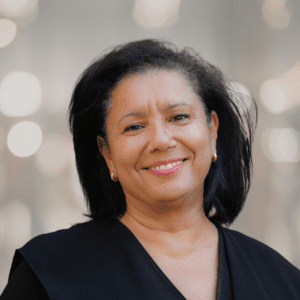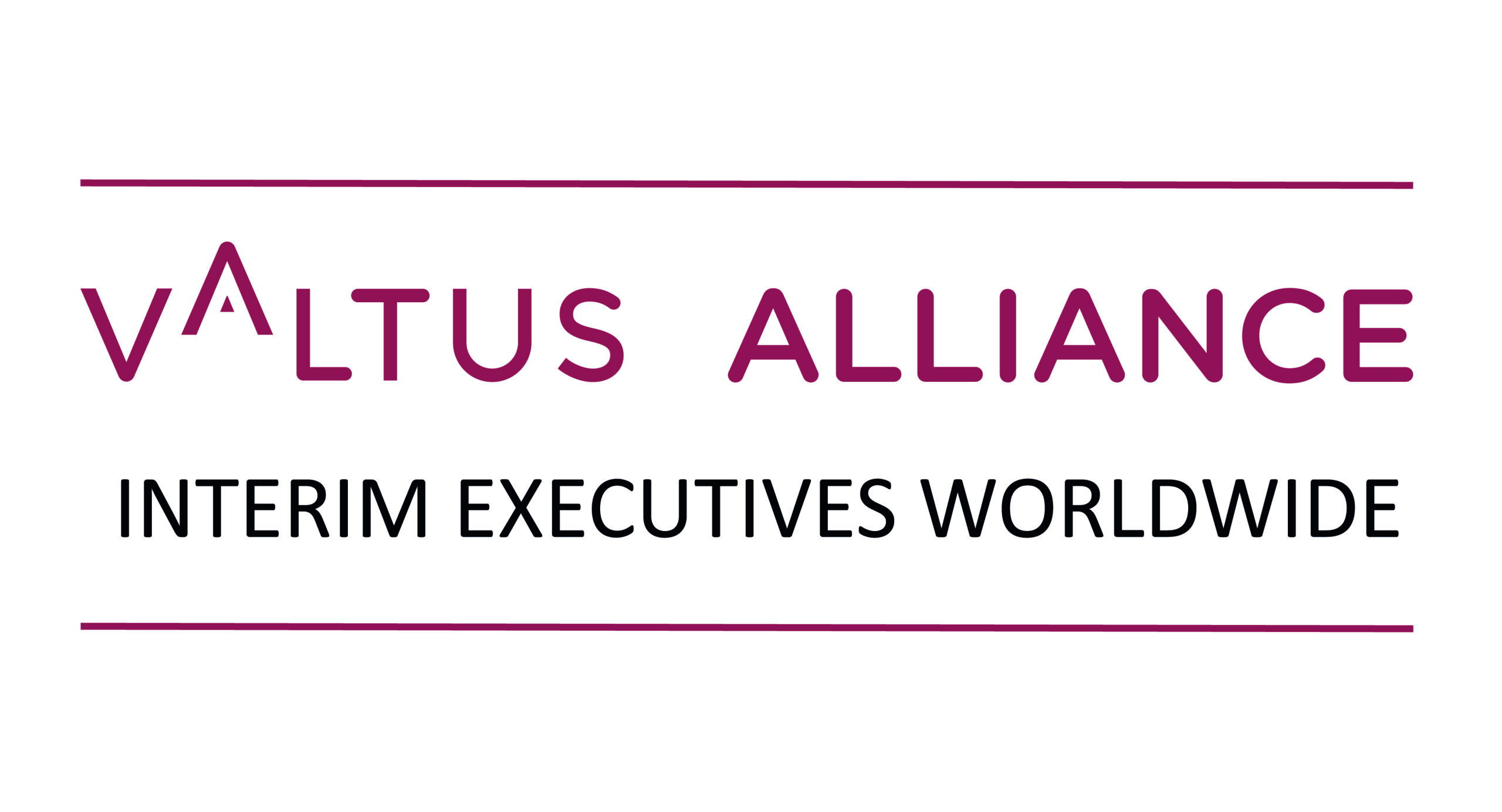Valpeo / Insights / Leadership
Leaders of tomorrow have to have quite a bit going for them to deal with the reality of today
July 13, 2022
The paradigm shift in executive search, its historical evolution and the trends of recent years: that’s what we talk about with Khadija Badli, Partner at VALPEO. “It was already lonely at the top, but it’s become lonelier.”
We live in extraordinary, uncertain times. What do you see as the main trends in executive search today?
“Organizations are facing increasingly complex expectations. Look at McKinsey’s new study on purpose, or the World Economic Forum’s Global Risks Report 2022. It talks about environmental issues, but also about new trends such as the attention to cohesion, not only in society but also in organizations. Today it goes a lot further than thinking about the product that will best serve your customer.
Khadija Badli outlines the historical context. “After the industrial revolution, organizations were happy to produce something and consumers were happy to get what was produced. Then, in the 1930s, people started segmenting products to better respond to customer needs, and the circumstances in which customers use a particular product or service. At the time, those were probably disruptive ideas. Changing an entire production system: that was the complexity at the time.
“In the 1980s, it was no longer enough to sell a physical product. You then had to start thinking about the experience with that product, and look for other forms of added value. The customer experience and the symbolism of a brand then became important. As a result, you had to pay attention to new trends, be ever more innovative and make a difference.
“In the nineties, two thousand, everything revolved around lifestyle. Products suddenly appeared on the market that changed the way we live. I think of Uber, Nespresso, Apple. Their products created a new lifestyle. You no longer had to wait half an hour for your coffee to be ready. You no longer had to search for the nearest cab company, you could just log on to an app.”
In the last ten to fifteen years, organizations have been forced to think much more, Badli says. Today, they are primarily looking for purpose and social relevance. That’s much more complex than 130 years ago. You have to take many variables into account. “It’s not so much about products or services, but about the reason for being. Why are we here? While coffee producers produce coffee, Nespresso taught us how to make coffee at home. That is something fundamentally different. Moreover, in doing so, companies must not harm what customers or society deem valuable. Sustainability, attention to nature and biodiversity, those are the new expectations that are being set.”
“People always talk about experience and well-furnished resumes. But the art today is to discover what people can experience that is not yet there. We call that complexity orientation: gaining an understanding of how aware someone is of what’s going on in society, so they can anticipate it.”
This is the fundamental paradigm shift in executive search, sums up Badli: “You need someone who already has sufficient expertise within a sector and who is at the same time able to conceptualize something that is not yet there, and to stay ahead of the curve. That’s going to be the new trend: making people aware of how much value they can add, and what that can lead to.”
What are the biggest challenges in executive search? What often goes wrong?
“People in an organization have higher expectations than before. They demand more and more autonomy and space to be themselves. In addition, you have to build a network of contacts in your organization and beyond. You have to be able to influence many more people, in order to shape the purpose. That purpose has so many variables that you have to focus on everything and everyone, including cultural fit. Which people are able to align with each other? Do they share the same values? You have to pay attention to complexity, but equally to how you fit into the context of an organization. Are you able to change the culture of an organization, to shape that purpose? That’s equally important.
“Leaders of tomorrow have to have quite a bit going for them to deal with the realities of today. And you don’t discover that through the letters of nobility of the past.”
In what ways does VALPEO deal with that?
“We look beyond the resume and the behavior: try to understand what led to a certain behavior, what makes someone successful or failed. That way you get insight into what that person may experience and their value framework. You can then better predict what the added value of someone is and whether they will fit into the context.”
“In addition, you need to have a much better view of why you’re doing it, and the context: are we here to optimize the system, to create a new experience, or to build a new identity? There’s a fundamental difference between making sure there are solar panels on a roof tomorrow or rethinking your business model according to the new reality around sustainability.”
How does VALPEO approach this in concrete terms?
“In a structured way, we interview candidates, trying to detect all this. But, equally important: we also talk to the company about the context, the complexity of the value to be added, and the culture of the organization. There we look for a match. And we don’t start from pre-programmed reference frameworks such as competence models. Before you know it, these are outdated. It’s a matter of exposing the whole reality.”
“All Valpeo Accredited Partners follow that same logic, wherever they are in the world. They are trained to understand how context evolves, how complexity evolves, and then how to detect that in candidates. Using a series of surveys, we examine value orientation and behavioral orientation. In other words, how that insightful ability is handled, both in relation to others, and in relation to context. This standard approach allows us to operate internationally without difficulty, with a diverse team and in different languages.”
What theory is this methodology based on?
“Several theories come to the same conclusion. There is Mahrer’s basic theory of psychotherapy and psychology, which explains how people symbolically create worlds for themselves. Elliott Jaques shows how complexity evolves and how people intellectually process that complexity. You have the theory of Robert Kegan of Harvard, who talks about levels of consciousness of people, and the patterns and gradations that can be discovered in them. It’s really all the same logic, shaped from a different angle.
“In terms of values, we look to the theory of Shalom Schwartz. He spent his career as a professor detecting the universal values of human beings. These are values that you find in every culture, which are already detected in children as young as four. For personality, we use the Big Five, because universal is the most recognized when it comes to the basic characteristics of a personality.”
“Thinking, understanding how people think and feel and like to act: that’s the basis of our model. And we use that in our advice to clients.”
What results can those clients expect?
“I’ve seen quite a few CEOs create very significant value. Primarily thanks to themselves, but equally thanks to us. We see how those people can take their organizations to the next level. It’s not getting any easier for them. It was already lonely at the top, but it has become lonelier. How many people are able to manage such complexity?”
“Supporting people is becoming more important. When I meet someone with a very high level of consciousness, who is able to conceptualize very many unknowns, I say ‘who else is going to inspire you?’ Then I refer to the books at Amazon.com. There you can order your best friend, and then within two days you get that book where you can get some inspiration. Because like-minded people with whom you can have a fundamental conversation about your problems and their complexity, they are getting scarce. You can find a lot of people with whom you can have a conversation about how to optimize your operations. But if you’re looking for someone to spar with about the geopolitical context and what it means for your business, I wish you luck. Please forward it to me as well sometime.”
Interested in connecting the why with individuals and organizations?

About Khadija Badli
Khadija Badli is an experienced leadership coach specialising in leadership development, executive coaching, facilitation and team development.
Subscribe to Ripple, the newsletter
Gain expert advice, innovative strategies, and actionable insights to drive sustainable growth and empower your organisation to thrive in today’s dynamic business landscape.

